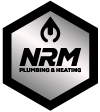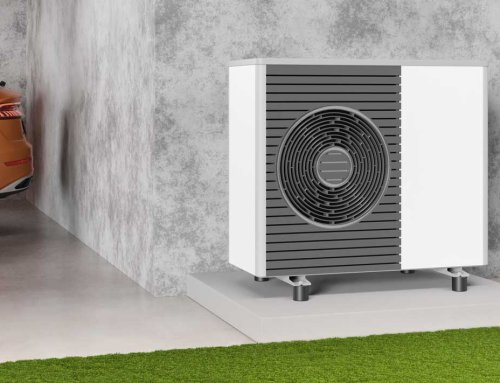What is Power Flushing ? and how will the process improve my central heating system & save me money?
Quick Navigation
- What is power flushing central heating system?
- How do I test my central heating to see if it requires a power flush?
- What happens during a power flush?
- Does Power Flushing really work?
- Is Power Flushing necessary?
- How long does power flush take?
- Will a power flush clear a blockage?
- Is a power flush messy?
- What should be in my central heating once the power flush has been completed?
- After a Power Flush, what else can do to help maintain the efficiency of the central heating system?
When your central heating system runs at optimum efficiency, it works well. Heating is provided to rooms that would otherwise be cold, and hot water flows freely from your taps. In fact, this still happens when your heating system isn’t running at full efficiency, so what’s the difference?
In simple terms, dirt, grime, and a build-up of foreign bodies – particularly rust – can restrict the flow of water through your central heating system. This means that water cannot be heated as effectively, and water cannot circulate as easily. Hot water becomes lukewarm water, and more energy is needed to heat even the smallest room.
An inefficient system works poorly and costs more money to produce the result you want. Power flushing can solve this problem by clearing your plumbing and thereby reducing your energy usage, saving you money by quickly increasing the efficiency of your central heating system.
What is power flushing central heating system?
Power flushing is a process in which your central system heating is cleaned internally to restore the flow of water and improve efficiency. This is done by sending water and cleaning chemicals around the system at high speed. The result is that the problem is resolved without causing any physical damage to the existing system.
How do I test my central heating to see if it requires a power flush?
There are several ways to determine if your central heating requires a power flush. Test kits can be found by searching the internet, or you can simply check your radiators for even heating. If the bottom part of your radiator doesn’t warm up as much as the rest of the radiator, it is potentially holding sludge and debris that is restricting the water flow.
The best way to determine is a power flush is required is to contact a plumbing engineer. With the use of the appropriate testing equipment, an engineer will be able to tell you if you would benefit from a power flush.
What happens during a power flush?
During Power flushing, NRM Plumbing and Heating connected a machine to your central heating system either via the boiler or a radiator. The machine pushes water and chemicals through the system to remove the build-up of unwanted debris which can include metallic “sludge”, limescale, rust, and other particles.
The motion and pressure of the mixture will help to loosen these particles, and the chemicals are designed to shift the more stubborn elements.
Does Power Flushing really work?
Power flushing removes the vast majority of foreign particles from your central heating system, improving its efficiency and reliability. It does work and can prolong the life of your central heating system including your boiler.
Is Power Flushing necessary?
If a system is run indefinitely without power flushing, any build-up within the pipes will continue to grow, eventually resulting in a complete blockage. The amount of time needed for this to happen will vary based on multiple factors including the quality of the water in your area, the age and condition of your pipes, the age and condition of your boiler, and your heating/hot water usage patterns.
Most people will only consider a power flush when they notice the results of sludge build-up, such as rising energy costs or heating not working as expected. Power flushing can be necessary to restore the functionality of your central heating system at a much lower cost than having the entire system replaced.
How long does power flush take?
The amount of time needed for NRM Plumbers to complete a power flush is determined by how badly affected your central heating system is. In most cases, if you have under 10 radiators, the work can be completed within a day, and possibly in just a few hours. However, if the amount of sludge, rust, and debris is excessive, the power flush process could run into a second day.
Will a power flush clear a blockage?
A power flush will help to remove sludge and rust from your central heating system. These particles usually cause a partial blockage and the flow of water will continue, even though it is diminished. If your plumbing is fully blocked, a power flush may be able to unblock it, but this is not always the case.
Serious blockages may require pipework or other components to be replaced, which may be in addition to power flushing or instead of power flushing. This can only be determined with an engineer’s inspection.
If large blockages are treated with power flushing there is a chance that any debris may block up parts of your boiler, which is a situation that should be avoided. Choosing a reliable plumbing company will ensure that your engineer will work with your best interests at heart.
Is a power flush messy?
Assuming that there are no leaks in your central heating system, a power flush is not a messy procedure. There is a small chance that the sludge in the system will be blocking tiny holes or leaks and shifting the sludge will open these holes up. If your heating system is otherwise in good condition, in the vast majority of cases there will be no mess at all.
What should be in my central heating once the power flush has been completed?
When the power flush is completed, there should only be a minimal amount of debris remaining in your central heating. This allows for the full free flow of water and restores the efficiency of the system.
It is impossible to remove 100% of the debris present, but power flushing is the most effective way of removing as much as possible without needing to replace major parts of the system.
Once the central heating system has had a power flush is there anything else I can do to help maintain the efficiency of the central heating system?
Yes, installing a central heating filter will reduce the build-up of dirt in the system and minimize the need for another power flush or replacement radiators. Central heating filters collect any dirt that is circulating in the system preventing the kind of build-up that requires power flushing to clear.
Considering a new replacement boiler product, NRM Expert Gas Installers highly recommend very reliable Viessmann Gas boiler. Read our latest blog post – Why choose a Viessmann Boiler ?







